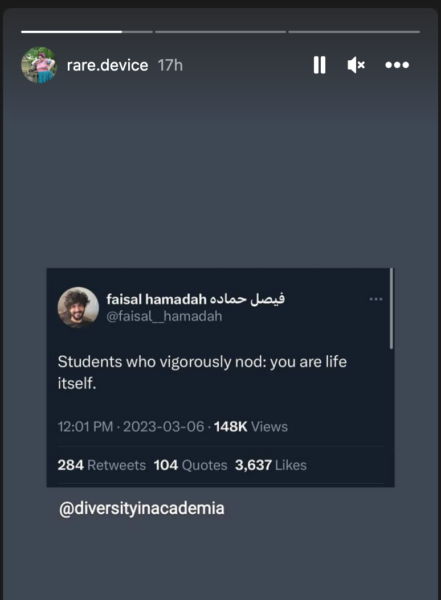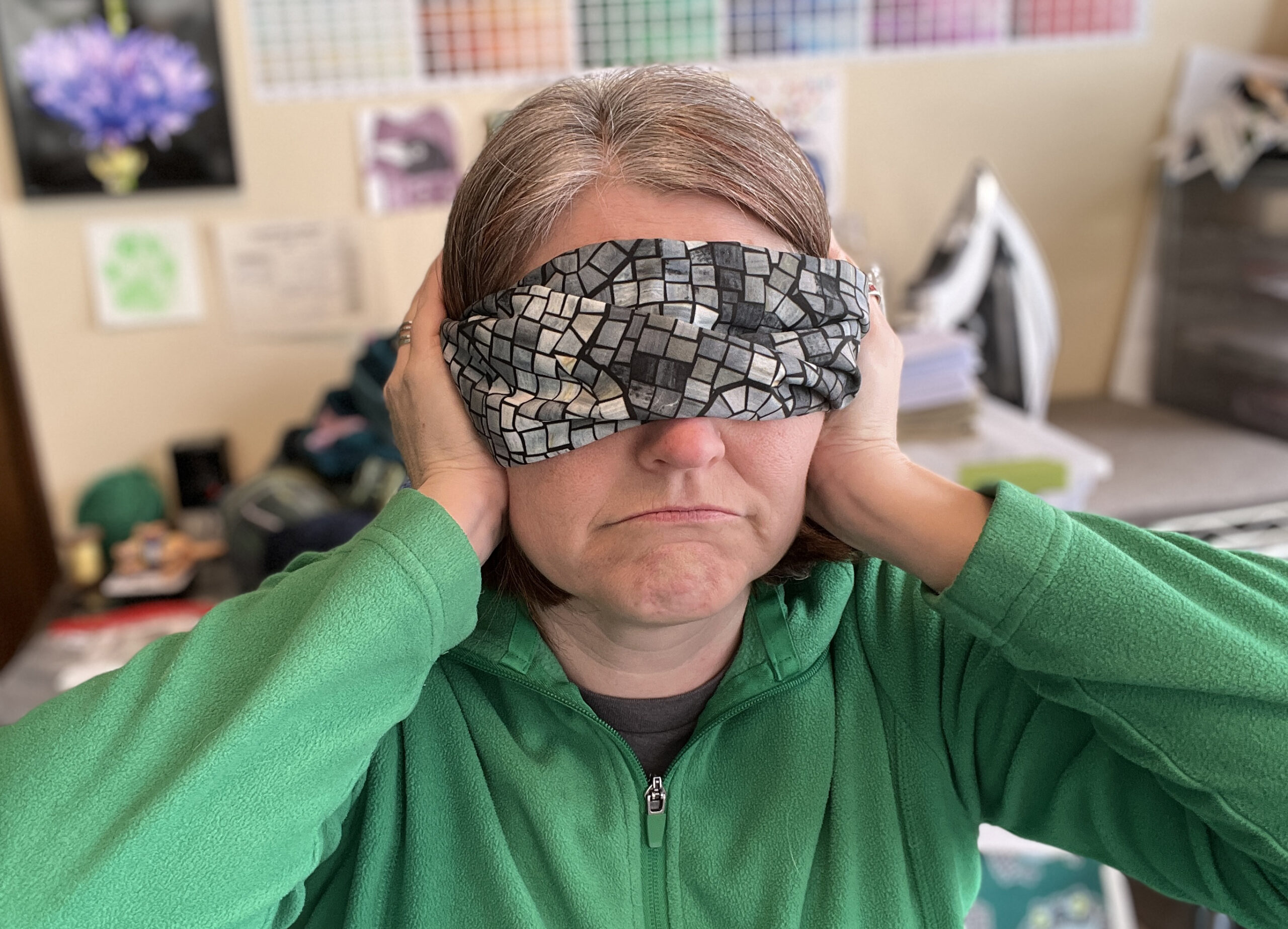Imagine putting on a blindfold. Then adding some earplugs. And then stepping into a room to teach a two hour class.
I LOVE teaching virtual/Zoom classes. If there is one spot of sunshine that came out of the past few years for me, it’s the acceptance/accessibility of online teaching. I jumped in to learning the technology enthusiastically. And I now teach something via Zoom every week from my studio table. It’s awesome.
I remember one of the late-2020 classes I taught had a group of 18 or so students and every single person had their camera and microphone turned off. I’m not complaining even for a minute that everyone chose to do that. There are many reasons to NOT have your camera and microphone on and they are all good ones. I support that 100%. But what I didn’t expect was how hard it was to teach when there is no feedback at all from students. I felt a little like I had to relearn how to do it.
It takes a lot of energy.
Until I was faced with an entire screen full of black rectangles, I didn’t realize how much I relied on simple feedback like students nodding or looking up from their project to know when it was time to move to the next step. It’s a like a conversation. I share something and then students share something back with me. But when there’s no feedback, it’s like shoveling snow. You just keep scooping up the next bit and stepping forward until you get to the end and then you stand there panting.

“Students who vigorously nod: you are life itself.” This quote popped up today in my Instagram stories and I couldn’t agree more. Those nods and smiles and thumbs up are like little shots of espresso. More so than I ever imagined.
The more I thought about it, the more I wanted to write this post with a few “Teacher Confessions” or things that I suspect students don’t know but that make my job a thousand times easier and more fun.
1. Questions are never dumb.
I was thinking about a class I taught a few weeks ago. It was a small one and started out with everyone watching quietly from their black boxes for the first 45 minutes. But then someone unmuted and asked a question. And it was like that broke the ice. Soon there was another question and then a comment. And then a “me too” in the chat. And suddenly we were having a conversation.
I wanted to give that first question-asker a shiny gold star sticker! With an in-person class, I can watch and see if anyone looks puzzled or is struggling with a step and I can show a demonstration a different way or explain it differently or do it again. I watch for that. But virtually, I can’t see what anyone is doing so I don’t know when to repeat or move forward. Until you ask a question.
2. Sharing is even better than questions.
I am not one of those teachers who believes anything is “my way or the highway”. I’m there to show you the way I do a thing to get a specific result, but I know that there are always many ways of accomplishing that end result, sometimes more and less successfully. In another class we were working on something with a specific step that we did over and over. So we all had some time to practice this new skill. After a few repeats, someone asked a question and instead of just me answering, another student added “I moved my hand this way and tried this” and someone else said “It was easier for me when I tried it this way”. That, my friends, is like winning the lottery. Not only did I learn a new way of thinking about it, but everyone else now had three ideas for ways to do this thing instead of just one.
3. Questions + sharing = community experience.
There’s an invisible thing that I think happens when everyone is participating in the conversation too. When someone asks a question, you might think “Oh I wondered that too.” or “That makes so much sense now to me too.” If you try something another student suggested, you suddenly have something in common with that other person too. It’s a shared experience or something you did together. You had the same question, tried the same thing, had the same success or flop. Suddenly it becomes something “we” did, instead of something “I” did. It’s a little like that feeling of watching a movie in the theater and everyone lip synchs the line “My name is Inigo Montoya. You killed my father. Prepare to die.” It makes you a part of something special. You walk away with a smile.
As teachers we all say “Please ask questions” but the confession part is that I really do mean it. It helps me as much as it helps you (and probably everyone else too.)


Brilliant! =)